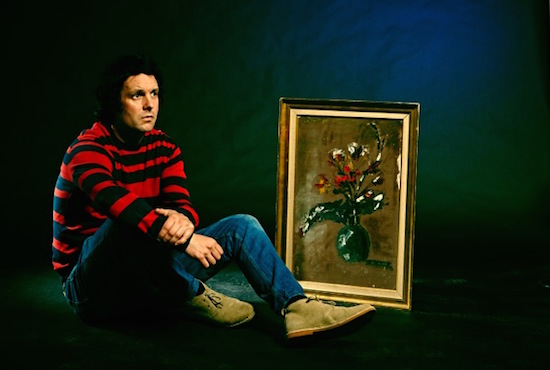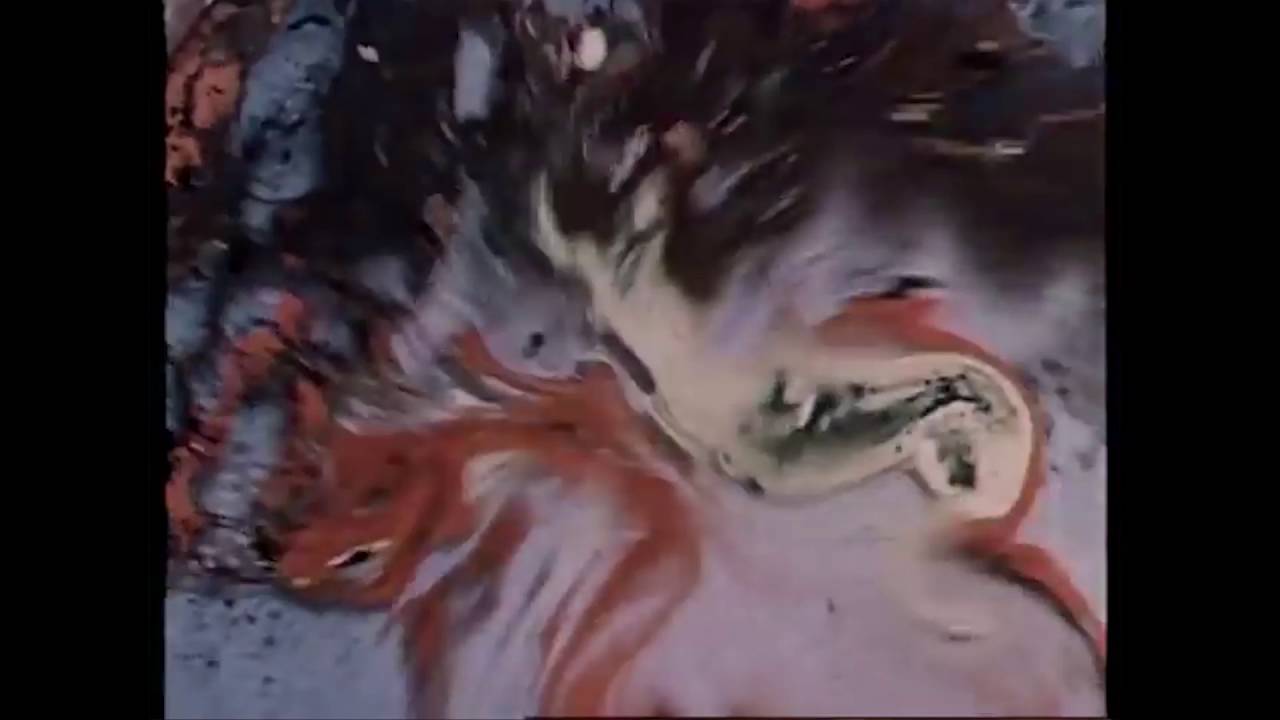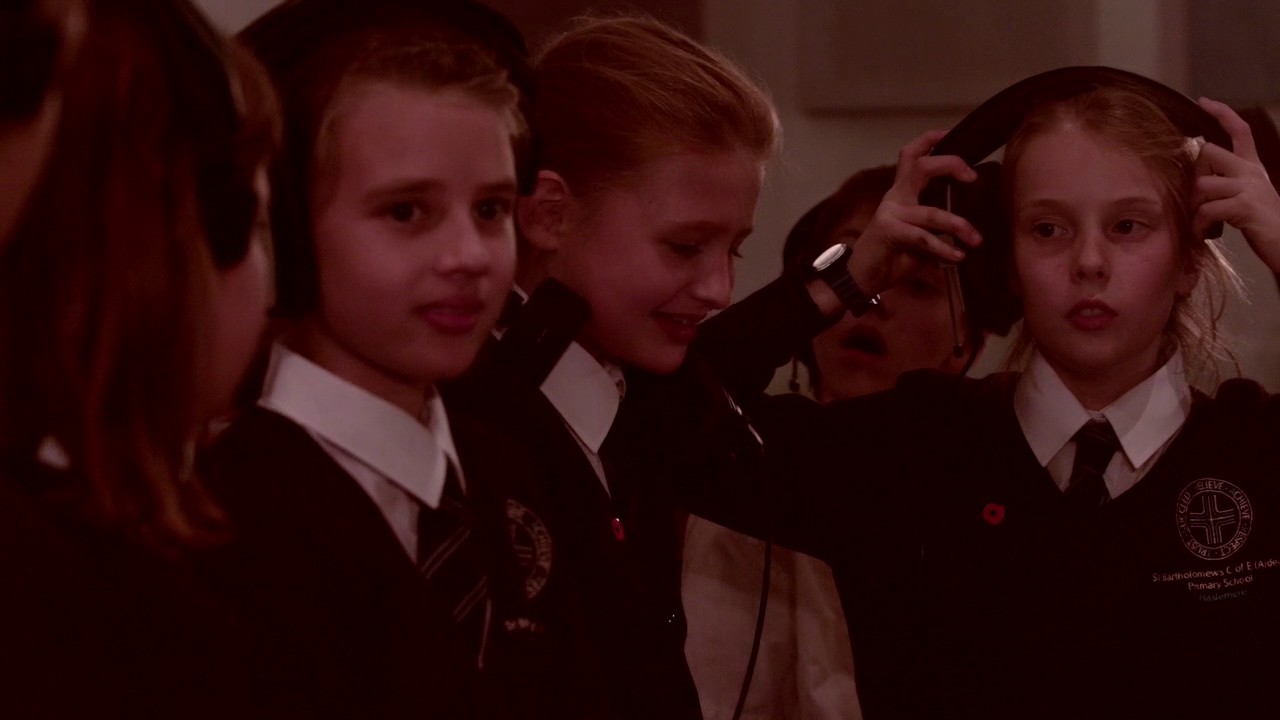Manchester indie psych band Whyte Horses are to play a one-off show at London’s Barbican Centre this May, with special guests La Roux, Stealing Sheep & St. Bart’s Choir, The Go! Team, Badly Drawn Boy and Josefin Öhrn all set to join them.
They are the brainchild of Dom Thomas, best known as the co-founder of celebrated reissue label Finders Keepers, and much of his ideology as a DJ and professional crate digger found its way into Whyte Horses’ debut album Pop Or Not. The album is a kaleidoscopic journey through indie pop, psychedelia, Tropicalia and cosmic film soundtracks.
Ahead of the Barbican concert, Thomas has put together a mixtape celebrating the brutalist, utopian spirit of the Barbican centre, which you can check out below. Fergal Kinney spoke to Dom Thomas about the Barbican show, the ideas behind Pop Or Not and his thoughts on contemporary music in Manchester.
You’ve defined Whyte Horses more as a project than a band. Could you tell me a little bit about how the project came into being?
Dom Thomas: It began as an idea more than anything. It was almost like a visual thing; I had this sort of epiphany where I kept imagining this group playing this sort of music in a church in Mexico, and it just got me thinking about what it would be like to make something like that. So I went away and set it up, making the sort of music I thought they’d make and it took its own path. But that was the initial idea behind it. And then the band formed later.
I know every band says this but in the case of Pop Or Not I do think the record feels a lot more like a compilation – you know, there’s jangly guitar indie, then French pop, then some drone – was that something you were quite conscious of?
DT: Yeah, the idea of listening to a record that’s in one generic style, it becomes quite boring after the third or fourth song, in my opinion. It just becomes a bit…when you’ve got the same arrangement on a song, your ears get tired. I come from a DJ background and it’s about trying to put songs together that don’t fit necessarily but you can get away with putting them next to each other. I think of myself as a punter and ask myself: what would I like to hear?
You recorded the album in Frisinone in Italy, I’m curious about the influence that recording the album there had on the record.
DT: It’s quite ‘desert-y’ and there’s a sunshine element, it’s got this vegetation but this real haze to everything in the air. That definitely fed into it, the record kind of has that haze over it. Because I’m from Manchester I’m always looking for a bit of blue sky wherever I can find it. And when you get to see somewhere like that you just totally soak it up. I’ve always been into music that was meshed together – not necessarily wall of sound stuff but music where you get duelling guitars and weird harmonics by putting things together, and you might not even know what’s playing – it could be four or five instruments doing the same thing, and it’s this strange concoction.
Everything we’ve done with Whyte Horses has been on a very conscious level; the ideas are always there first. I like the idea of putting things on there, like French songs or Japanese melodies though we’re from Manchester. We’ve been slagged off a bit and tarnished by, you know, the retro brush but now these days everything’s been done before, there’s nothing that’s not been done, so I tend to thikg that instruments or arrangements don’t really matter – it’s about whether it works for the song. I’d be quite happy to stick my neck out and say our stuff sounds a lot more modern than a lot of the rubbish that’s around at the moment. In a way it’s a lot more modern than anything.
You released a version of the album late last year that was sang wholly by children, St. Bart’s Children’s Choir. There’s a real innocence and optimism to Pop Or Not, was emphasising that part of the thinking in using the children’s choir?
DT: There’s a lot of cynicism on there too but it’s all buried away! It does have that and it’s definitely meant to be a kind of musical expression of childhood feelings, trying to make it like an adult version of watching kid’s TV when you’re a kid. To try and sort of feel those sensations again through music, to try and get a feeling into the music and the songs because it’s just lacking everywhere else. The word psychedelic gets bandied around far too often for my liking and it’s generally just about three skinny lads singing about nothing, you know? But there’s nothing more psychedelic than kids is there? Childhood is like being on acid most of the time anyway.
The psychedelic scene is a joke, I don’t want to sound critical or horrible. But yeah, we’d wanted to do [the St. Barts’ Children’s Choir album] for a while, a project where kids sing songs that they wouldn’t normally sing. So it’s a very natural process to get a load of kids to re-record the album because it kind of touches on those childhood sensations and the songs are actually very fitting to a child’s voice, luckily. There was a guy in Canada in the ’70s, an album called the Langley Schools Music Project , where he just got a load of kids to sing pop songs he really liked – David Bowie and that. And it’s really well done. So when you hear kids singing your songs it just validates them, they sound like real songs when you hear them back, it’s quite refreshing. Like songs that could have been around for a hundred years.
You’ve not really performed too much as Whyte Horses and when you has it’s not been circuit gigs – I’m thinking about the show you did at the Dancehouse in Manchester last year or the forthcoming Barbican concert, I’m curious about what it is about those kind of venues that do make you want to perform there?
DT: We just want to make each show memorable and worthwhile doing, and not just turning up somewhere. The funny thing is, in this day and age people just keep asking you to do gigs all over the place and offer you derisory money and expect twelve of you to get together to do it. It’s a very strange time in music where everything’s become so cheap, most bands would do it but I find it cheeky, I find it insulting when someone asks me to go a gig like that. There’s a lot of that going on and I don’t get it really, it’s a strange time. But I think doing things like the Barbican, that’s what it’s all about, that’s exciting and that’s something we are interested in doing. Where we can have a visual element alongside the music and can control things the way we want to, and make it something all encompassing.
Certainly the gig at the Dancehouse became a lot more of a collaborative thing – bringing in people like Badly Drawn Boy and the Go! Team, is that something we can expect from the Barbican show?
DT: Similar kind of thing really, yeah. It’s a bit stale if we keep inviting our friends and people we know so we’ll be doing some different cover versions. You know, we’ve done the record, it’s out and we like things to be a bit different. We’re going to play the whole record and then just have other songs in amongst it and do some little skits in between and things.
Are you working on another record and is there a concept there in the same way there was with Pop or Not?
DT: Yeah, we’re doing another one, the next album is quite far through now and it’s got a loose concept which is sort of an amusing writing tool. It’s got three concepts and the songs dictate how it’s written. I’m really, really pleased with how it’s turning out and I think it’s going to be better than the first one. I’m not going to fall into that trap of putting out a worse one – there’s no pressure for us and I don’t have any doubts really. We’ve not gone near the studio yet but in the next couple of months we’ll finish it all off. It’s going to be exciting to get back in the studio.
Something you’ve touched on in other interviews which I find quite interesting is that you don’t see yourself too much as a musician but rather someone focused on crafting the overall sound – a non-musician in the vein of Brian Eno or Phil Spector – am I right in that?
DT: Definitely yeah, I’d say it’s sort of like being a producer as well. For me, personally, I’ve never been interested in knob twiddling and basically it’s a case that I like getting really into songs and all their permutations. When you’re engineering stuff you have to think on that side of things and it’s quite difficult having your vision completely clear so I tend to let someone else engineer so I can stick to the path and not get veered off by thinking about the proper way of doing something. By necessity, that works in my favour, to use my ear as oppose to my eye.
What are your thoughts about where Manchester is at right now?
DT: The city? Nothing, there’s absolutely nothing, there’s no bands, there’s no scene. It’s so rich in heritage but it’s been a disgrace what’s came out of Manchester in the last ten years. I’ve not heard anything good. I get told off for that (laughs).
Whyte Horses play London’s The Barbican on May 11. Tickets can be purchased here




